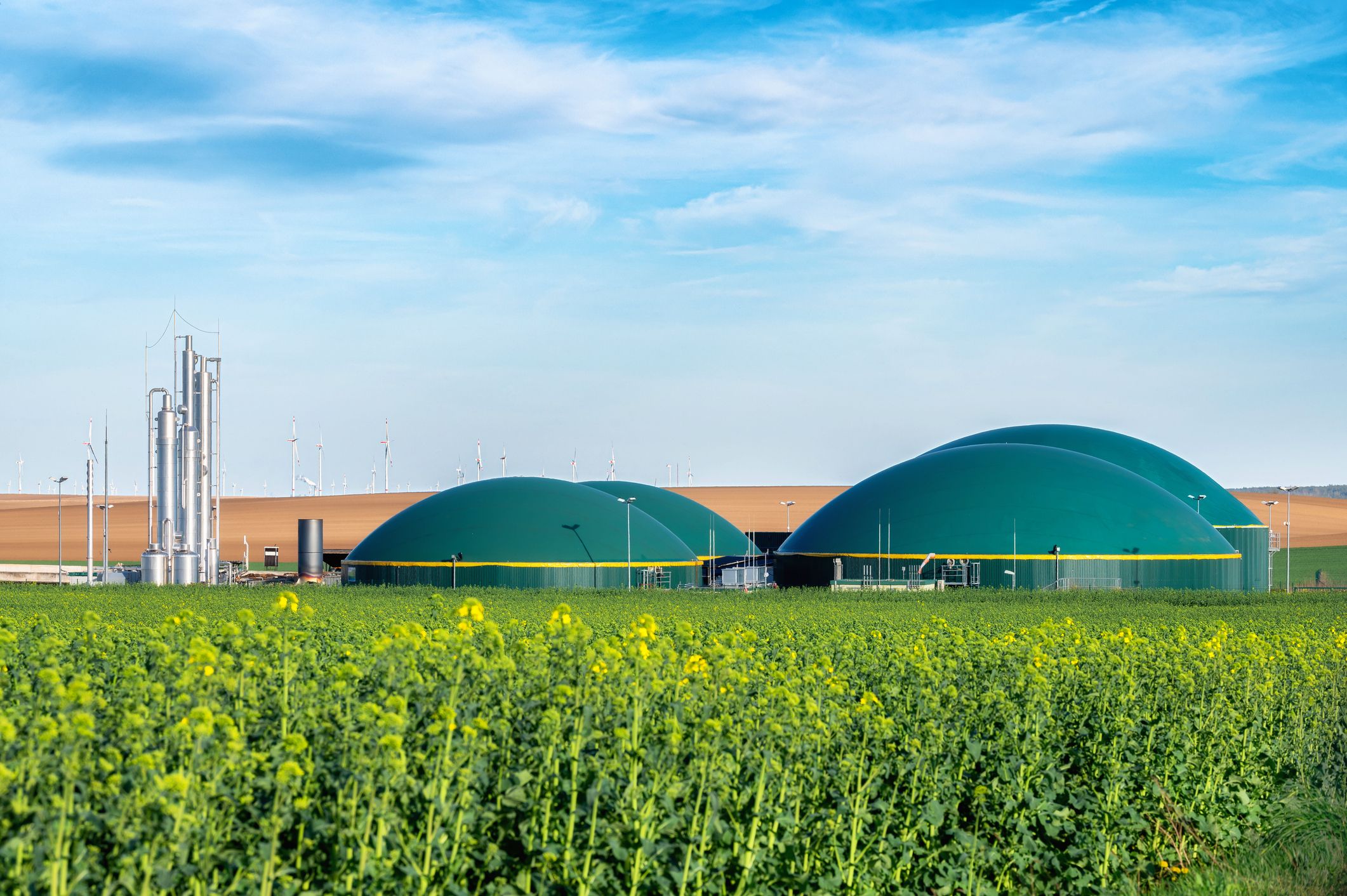Federal Government regulates National Biomethane Program
On September 5, 2025, the Federal Government published Decree No. 12,614/2025, which regulates Law No. 14,993/2024 (Fuel of the Future Law) with respect to the National Program for Decarbonization of Natural Gas Producers and Importers and for the Promotion of Biomethane (National Biomethane Program).
This new regulatory framework aims to reduce greenhouse gas (GHG) emissions in the natural gas sector by establishing mandatory decarbonization targets and promoting the use of biomethane as a sustainable alternative. The model is inspired by RenovaBio, applying market-based mechanisms and environmental certification principles to the natural gas segment.
Structure and operation of the Program
The Program establishes mechanisms for natural gas producers and importers to reduce their emissions, either through the direct use of biomethane or by acquiring Biomethane Origin Guarantee Certificates (in Portuguese, Certificados de Garantia de Origem do Biometano, the CGOBs). These certificates may be issued by certified biomethane producers or importers and will have a validity period of 18 months.
Key elements of the regulation include:
- Annual decarbonization targets: these will be set by the National Energy Policy Council (in Portuguese, Conselho Nacional de Política Energética, the CNPE) by November 1st of each year and individualized by the Brazilian National Agency for Petroleum, Natural Gas and Biofuels (in Portuguese, Agência Nacional do Petróleo, Gás Natural e Biocombustíveis, the ANP) by December 1st. For the year of 2026, the overall target set by law is a one per cent (1%) reduction in emissions in the natural gas sector.
- Target compliance: may occur through biomethane consumption or by purchasing and retiring CGOBs.
- CGOB issuance: subject to certification of origin and efficiency by an accredited agent, ensuring traceability and environmental integrity.
- Registration and reporting: the retirement of CGOBs must be performed with the designated registrar, who will report compliance to the ANP.
- Sanctions: non-compliance may result in fines of up to fifty-million Reais (BRL 50,000,000.00), as well as temporary or partial suspension of operations.
Regulatory stages and next steps
The ANP will have one hundred and eighty (180) days to establish the procedures necessary for the implementation of the National Biomethane Program
The ANP has already announced that it will use the RenovaBio model as a reference and that the CBIO Platform will be adapted to register CGOBs, with the aim of integrating the two systems into a convergent environment.
At present, the market awaits the conclusion of the Regulatory Impact Analysis (RIA), which will support the definition of the CNPE’s global target.
Market context and perspectives
The Brazilian biomethane market, still in its early stages with roughly a decade of development, has been consolidating based on private investments and voluntary demand. The first plants, focused on municipal solid waste, paved the way for new applications in the agricultural, industrial, and mobility sectors, expanding both the scale and diversity of production.
The enactment of Decree No. 12,614/2025 represents a milestone for the sector, establishing regulatory mechanisms and fostering integration between the voluntary and mandatory markets.
From the perspective of the biomethane production sector, the regulation presents an opportunity to expand biomethane supply, as demand for decarbonization solutions already exists among energy, transportation, and industrial companies.
On the other hand, the natural gas sector — including natural gas producers and importers, as well as self-producers and self-importers — now faces regulatory targets to meet through the acquisition of biomethane and CGOBs, and becomes subject to penalties in case of noncompliance. This obligation has been criticized by industry associations, which argue that it directly impacts the cost and competitiveness of Brazilian industry.
Conclusion
The National Biomethane Program marks the beginning of a new phase in Brazil’s energy policy, integrating environmental targets, regulated markets, and economic instruments.
While the program aims to foster the development of the biomethane market and decarbonize the natural gas sector, it also establishes regulatory goals that may be challenging to meet and could affect the price and competitiveness of Brazilian natural gas.
CMA’s Energy and Natural Resources Team is available to provide further information on this topic.
The Energy and Natural Resources Team at CMA remains available to provide further clarification on this matter.


Comentários